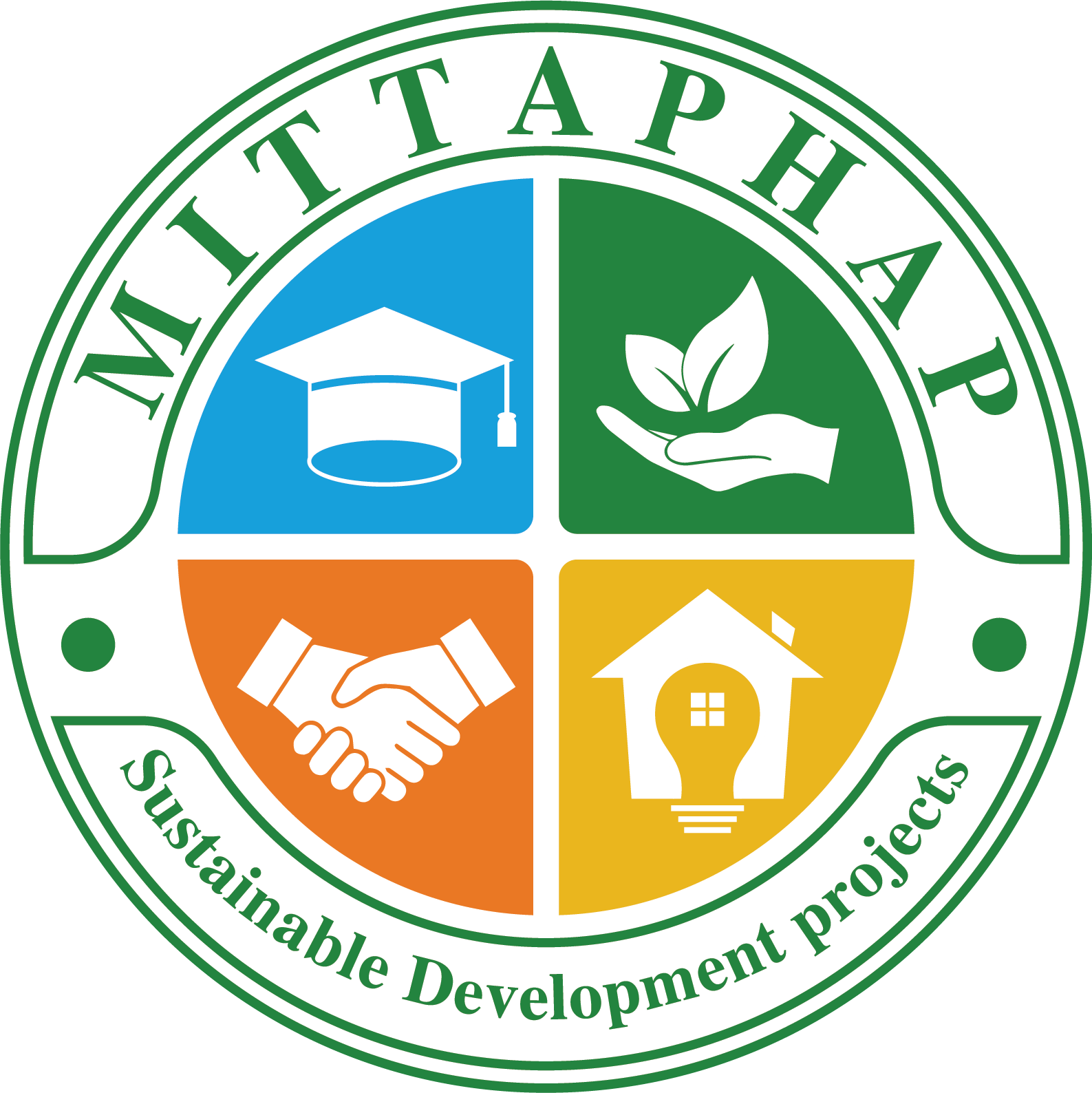At Sae Lao, we’re committed to building a more sustainable future in Laos. Our project focuses on eco-friendly farming, natural building methods, and responsible waste management.
We grow much of our own food for the on-site restaurant, source locally when needed, and build with materials like bamboo, timber, and mud bricks. By improving our systems every day, we’re working toward a self-sustaining circular economy.
Our goal is to lead by example and show that a different, more sustainable way of living is possible.
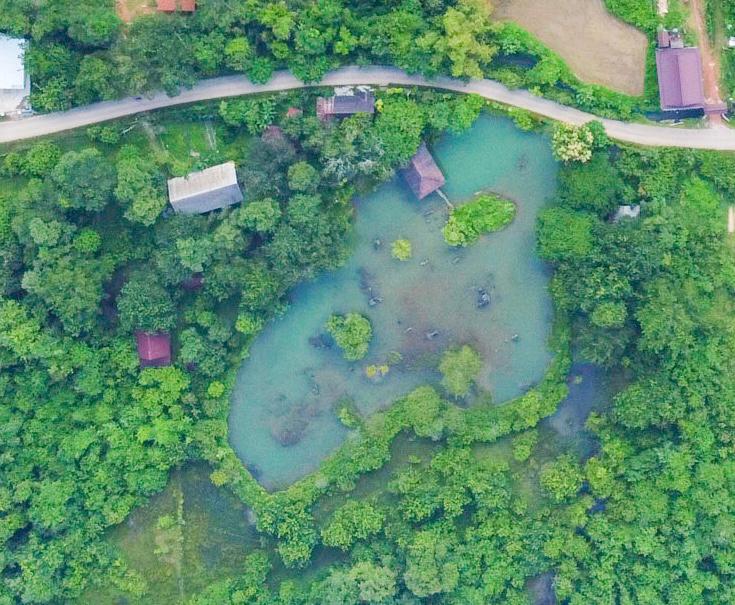
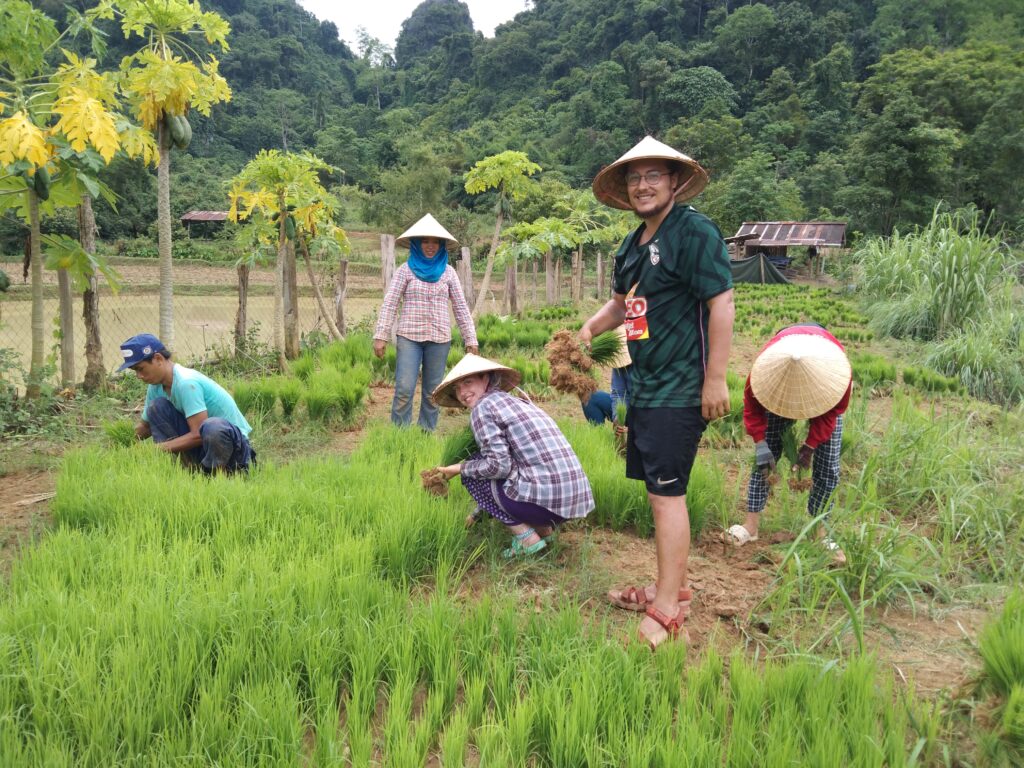
Our organic garden is key to Sae Lao’s vision of sustainability. We aim to grow all our fruits, vegetables, and herbs on-site and source rice and animal products from local farmers.
Using eco-friendly methods, we enrich the soil, compost waste, and continually improve our farming. We’re also working with experts and students to prepare for future environmental challenges.
Most locals grow food without chemicals and sell any extra at the Vang Vieng market, often facing high transport and stall costs. Sae Lao helps by buying their organic produce directly at fair market prices, reducing their expenses and boosting local incomes—while providing fresh, healthy food for our team.
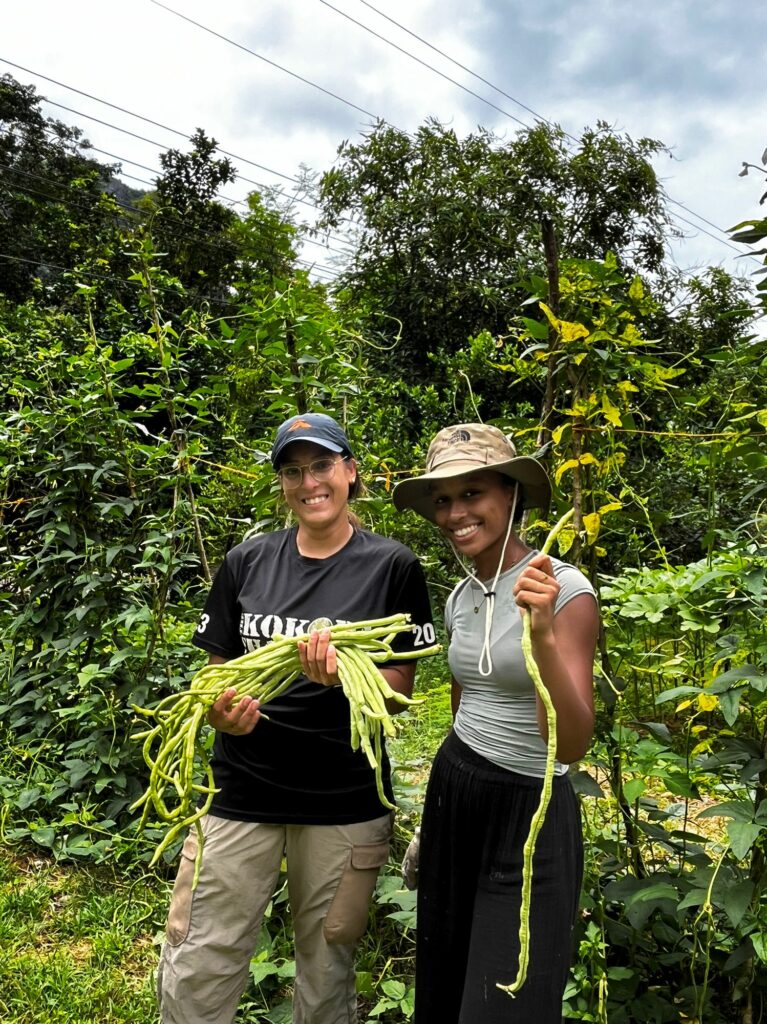
Our sustainable initiative project and social enterprise operate a restaurant, guesthouse, and hostel to minimize waste and promote recycling. We are committed to green and eco-friendly tourism and activities, including sustainable products.
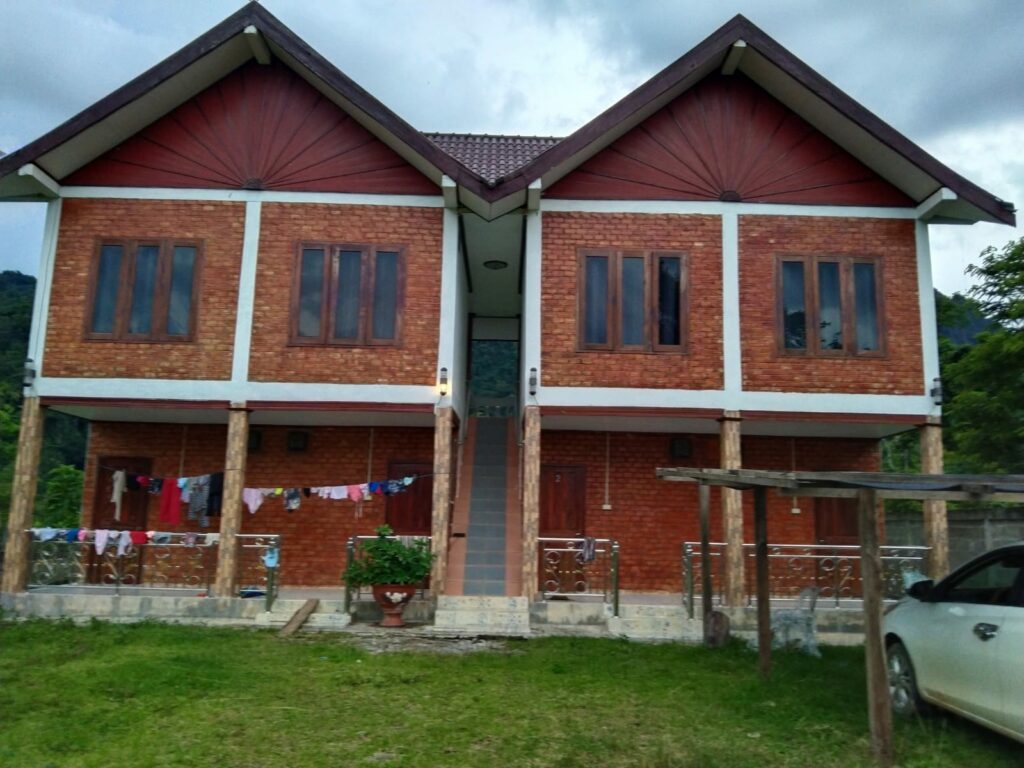
All Sae Lao buildings are made with locally sourced, natural materials like bamboo, mud, stone, and reclaimed wood—using traditional Lao techniques.
Our community center and volunteer dorm were built with mud bricks made on-site. The guesthouse, designed with our team, is our most sustainable building yet and serves as a model for eco-friendly construction in the local community.
In Laos, awareness of sustainability is still growing. At Sae Lao, we work closely with local people to promote the responsible use of natural resources, organic farming, permaculture, and eco-friendly building.
Not long ago, Lao communities used natural materials like banana leaves instead of plastic. Today, plastic waste is a growing issue everywhere—including here. At Sae Lao, we’re finding creative, local ways to reduce and reuse non-recyclable waste.
We offer low-cost water refills at our restaurant to cut down on single-use bottles. We also repurpose old bottles into plant holders, lampshades, and even building materials—turning waste into something useful.
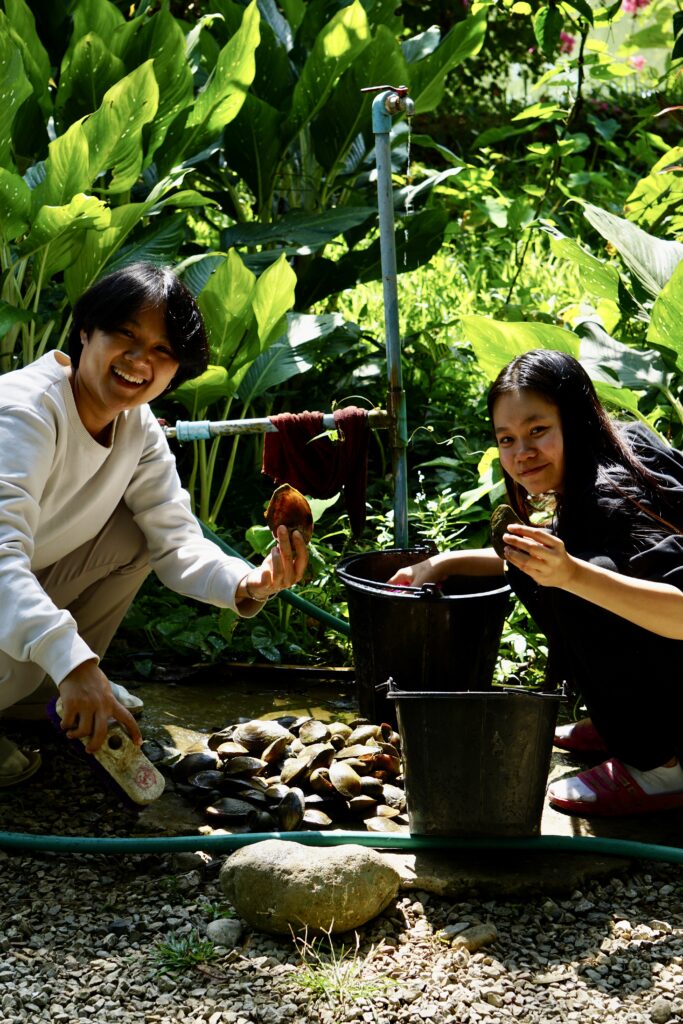
Support SAE LAO and help build a brighter future in rural Laos. You can volunteer to teach, farm, or support community projects—or donate to keep our programs running. Every bit of help makes a real difference.
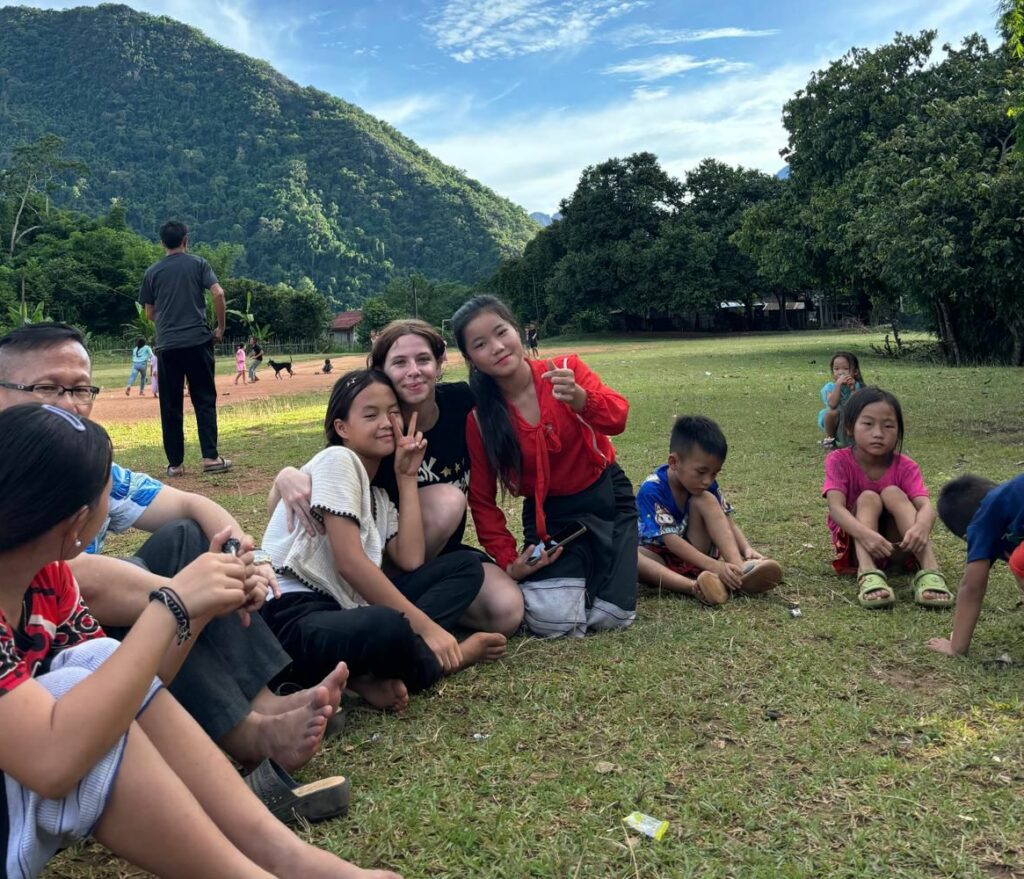
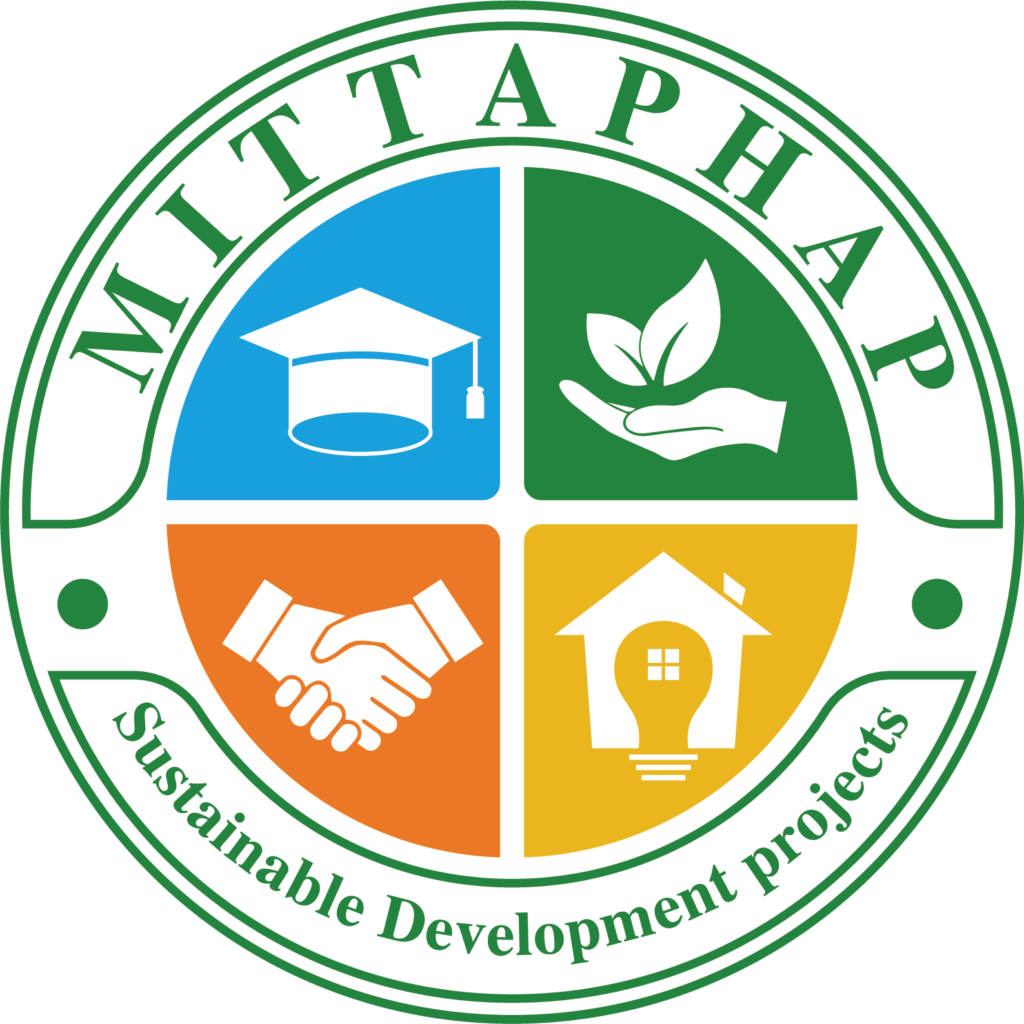
MITTAPHAP-Siem Reap Project is located in the Preah Dak village, 12km away from Angkor Wat, Siem Reap.
Located in the quiet Nathong Village, 7km outside of Vang Vieng in Lao PDR. Next to Blue Lagoon 1.
